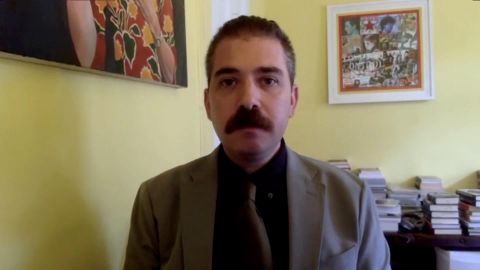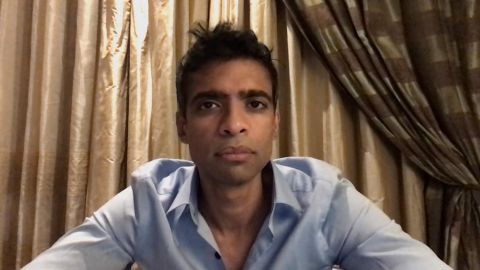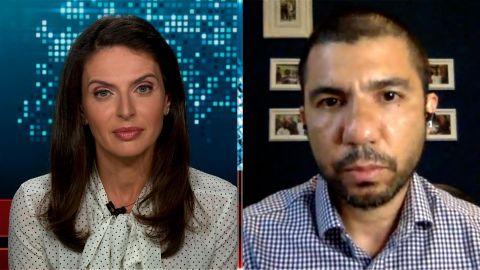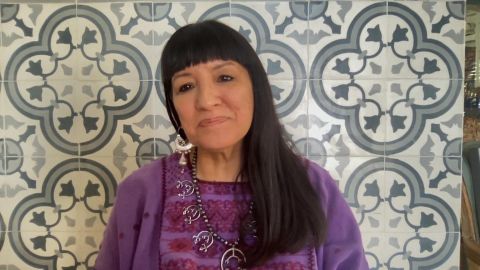Read Transcript EXPAND
DANIEL BOGADO, DIRECTOR, “9/11: ONE DAY IN AMERICA”: Well, sometimes, as a director, you have the idea for a documentary series. In this case, I was approached by a company called 72 Films who had worked together before. And they told me that they had secured documentation for “National Geographic.” And the idea was for the first time to do a documentary series which will be all archive-led, which will be several parts, and will bring together all the most extraordinary, iconic, compelling, as well as known stories of 9/11, and kind of bring them all together as part of this grand narrative. And I immediately just thought that is a really, really good idea, because there have been — as you say, there have been a lot of documentaries, a lot of books, a lot of articles about 9/11. Usually, they focus on one story, one element. And this was an opportunity to kind of bring it all together. And I think also the fact that it’s been 20 years, it means that all the contributors, all the survivors, all the first responders that we spoke to have had a lot of time to think through, and these experiences they have had. And so, when we started doing the interviews, we realized that these were very, very powerful. And we started getting a sense that, if we put this together the right way, it’s going to be a very, very powerful series. And, certainly, the reaction of people who’ve watched it, that’s been it. It’s been extraordinary.
BIANNA GOLODRYGA: And we have read it that those who agreed to participate, those survivors, you actually advised them to take the day off as they came in for this interview. I’m just curious, all these years later — and I know many talk about the therapy that they have had to go through to get them to this point. What was that day like for them, as they relived those harrowing moments?
BOGADO: Well, it was different for everybody. But I think, in the vast majority of cases, it obviously was a very emotional day. Sometimes, when you make a documentary, you just kind of tell people, oh, it will require an hour or two, and you’re there to basically get a story, and you go from point A to point B to point C. But that wasn’t just the purpose of this. We wanted it to feel like a much more intimate, like — almost like a confessional type of experience, and for the audience to get an unmediated access. So, there is no narration in the documentary. All the voices you hear are from people who were there on the day and who survived. And very early — and we explained that to the contributors. We said to them, we don’t want this to be just another documentary. We want is to be a landmark, legacy document, particularly for a young generation who were not alive at the time. I think they had time to think about that. And then, when they sat down, they really just bear their hearts out. But the next day, we took duty of care of our contributors very, very seriously. And we would call to see that they were OK. We encouraged them to bring somebody with them to be there during the day. But many of them did find it cathartic.
About This Episode EXPAND
Anand Gopal; Daniel Bogado; Spencer Ackerman; Sandra Cisernos
LEARN MORE



